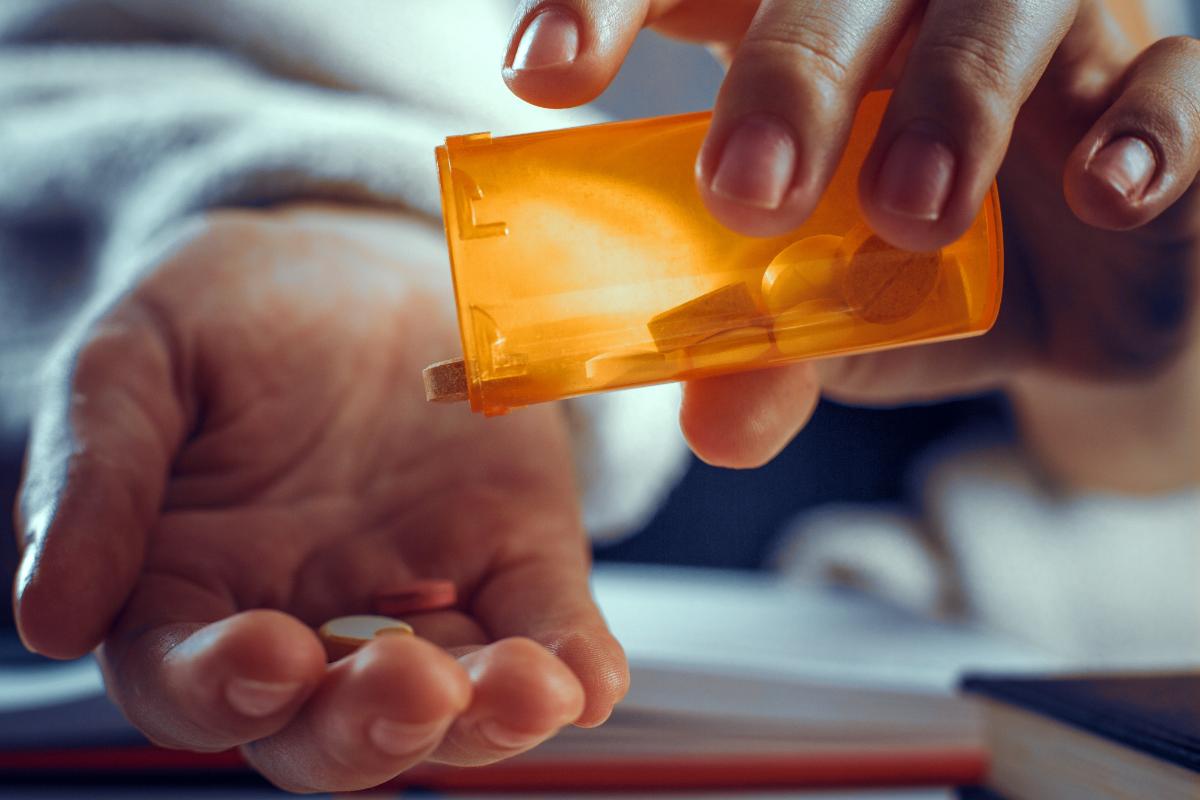Who are the ideal participants of prescription drug addiction treatment programs? The answer may not be as cut and dried as you think. Of course, these treatment programs are for those struggling with prescription drug addictions. The problem is that many people are not aware of how addictive these prescription drugs are and may not recognize an addiction when it develops.
Prescription drug addiction affects not only the person with the substance use disorder but also their immediate family and friends. It can damage a person’s reputation, relationships, and self-respect. While it’s difficult to recognize how addictive prescription drugs are, it’s even more difficult for those suffering from prescription drug addiction to envision a life past their disorder — until they seek professional help.
If you’re looking for professional help in the form of a prescription drug addiction treatment program in Ohio, contact Midwest Detox Center. Reach out to our team online or call 833.647.0392.
What Makes Prescription Drugs Highly Addictive?
When substances are very addictive, healing from an addiction to them can be difficult. Even a legitimate drug prescription can be habit-forming. These drugs are often potent, which is why they require a drug prescription, but also why they can be detrimental.
Several kinds of prescription drugs are commonly misused, which leads to dependency and addiction:
- Opioids, which are prescribed to relieve pain
- Depressants, which are prescribed to help a person sleep or relieve anxiety
- Stimulants, which are prescribed to help treat attention deficit hyperactivity disorder (ADHD)
Misusing prescription drugs can be as easy as someone taking more than the dose indicated by their prescription. Someone taking drugs prescribed to other people may also be a form of misuse. Prescription drug misuse has become a major public health problem because it can lead to addiction and even death by overdose.
What makes prescription drugs so irresistible? In the brain, neurotransmitters such as dopamine can send messages by attaching to receptors. The actions of these neurotransmitters and receptors can cause the effects that many ascribe to prescription drugs. Each type of prescription drug works differently in the brain and can cause actions similar to those caused by some illegal drugs.
Prescription opioids can bind to opioid receptors, which are the same ones that respond to heroin. These receptors are found in many areas of the brain and body, especially in the regions controlling the perception of pleasure and pain. Prescription depressants can make a person feel relaxed and calm, in the same way that club drugs GHB and Rohypnol do. Prescription stimulants can have similar effects to cocaine because they can cause a buildup of the brain chemicals dopamine and norepinephrine.
What Is the First Step in Prescription Drug Addiction Recovery?
When it comes to prescription drug addiction treatment programs in Ohio and across the US, the first step is typically medical detox. The purpose of detox is to cleanse a body of any trace of addictive substances, and most addiction treatment programs usually require it.
Why is medical detox necessary? While detoxing without medication-assisted treatment (MAT) is certainly possible, it’s usually not successful. Detoxing with MAT is so much safer and more comfortable for everyone involved. It takes care of any discomfort or pain from withdrawal symptoms and allows the focus to be put into recovery.
Medical detox will take anywhere from five days to almost two weeks, depending on various factors — such as the prescription drug the guest is detoxing from, the severity of their dependence on it, and more.
The medication used in the detox process may also be prescription drugs, but they may be necessary to address the guest’s physical and mental needs. 24-hour care means that any fluctuations in a guest’s health and nutrition can also be taken care of via over-the-counter (OTC) medications and possible intravenous (IV) therapy. Some detox centers will also provide guests access to therapists who will help them deal with the psychological issues they may experience as the drugs leave their systems.
What Should You Expect From a Prescription Drug Rehab in Ohio?
Prescription drug rehab programs in Ohio and across the rest of the country will often provide a secure and supportive environment. Guests will also have access to the services of qualified and trained medical professionals.
Treatment options are diverse when it comes to prescription drug addiction, but most specialists will use behavioral and medical forms of care. Guests may have to choose between outpatient and inpatient programs — the former allows for more flexibility in terms of time and location, while the latter is best for those with severe addictions with addictive habits that need to be broken.
After detoxing, guests will be provided with a structured schedule of treatments meant to help them get over their addiction, rebuild their lives, and maintain their sobriety after the addiction treatment program.
Many programs include outdoor and indoor activities that stimulate and heal the mind and body. Guests are also expected to meet with therapists on a regular schedule. Group therapy and family or couples counseling may also be part of the program. Finally, skill-building workshops and activities — one-on-one or with a group — will help guests feel more confident about life after treatment. They will learn the skills and have access to tools that will help them stay sober throughout their lives.
Finally, aftercare planning with the clinical staff is essential before being discharged. Without this step, guests may feel helpless or at a loss when navigating their lives after treatment. Typical parts of aftercare involve regular talk therapy sessions, attending support groups meetings, and even undergoing scheduled drug tests.
Ready To Learn More About Midwest Detox Center’s Prescription Drug Addiction Treatment Program in Ohio?
If you’re looking for a prescription drug addiction treatment program in Ohio, contact Midwest Detox Center. You can reach out to us online or call 833.647.0392.







